Since July, the entire festival team has been on site at the JKU campus, and that’s precisely where we arranged to meet Martin Honzik, Managing Director and CCO Ars Electronica, to visit the various festival venues with him and learn a little more about each location in advance. We meet him in his office in the Science Park at Johannes Kepler University Linz, where our tour starts.
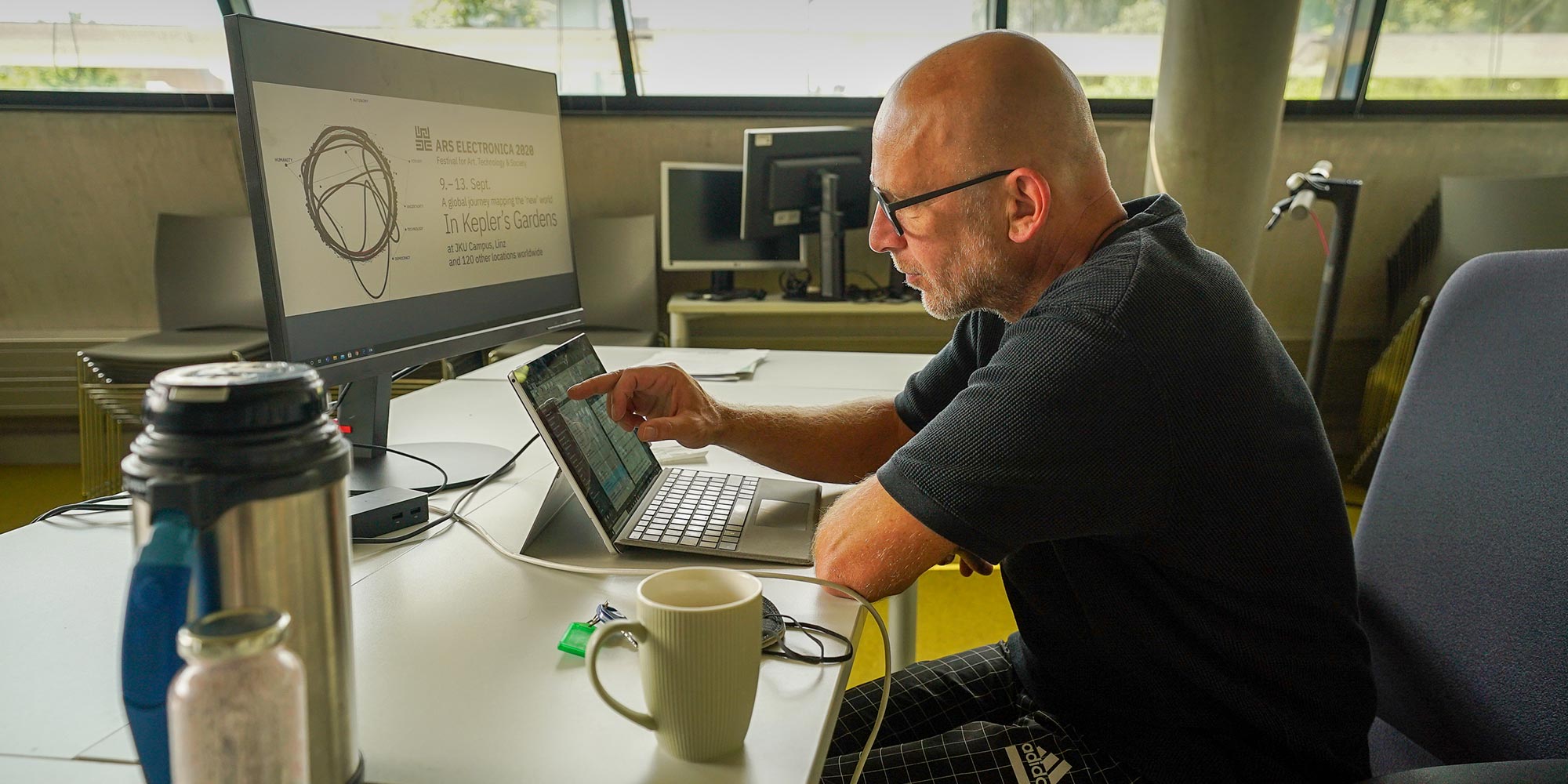
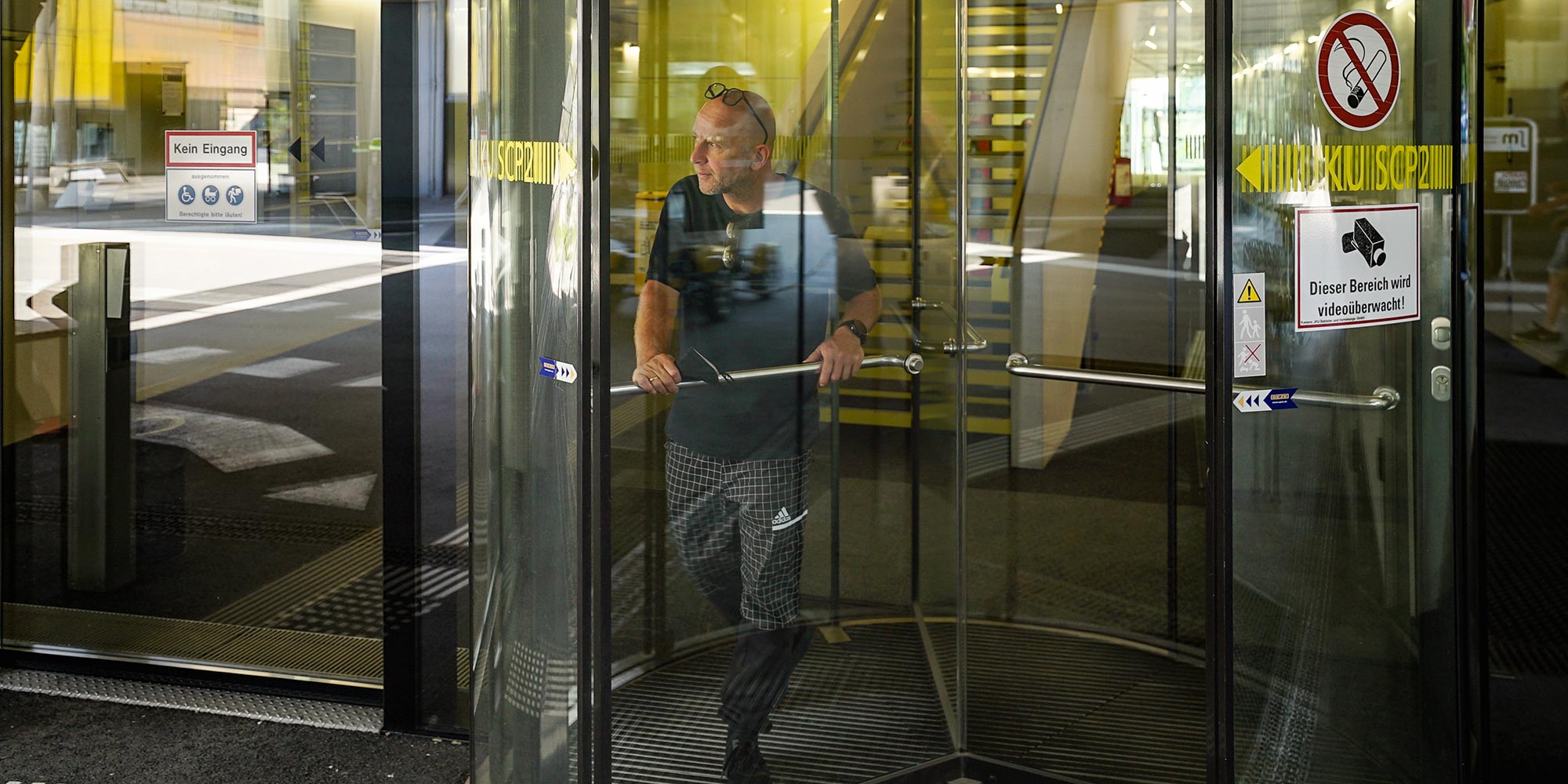
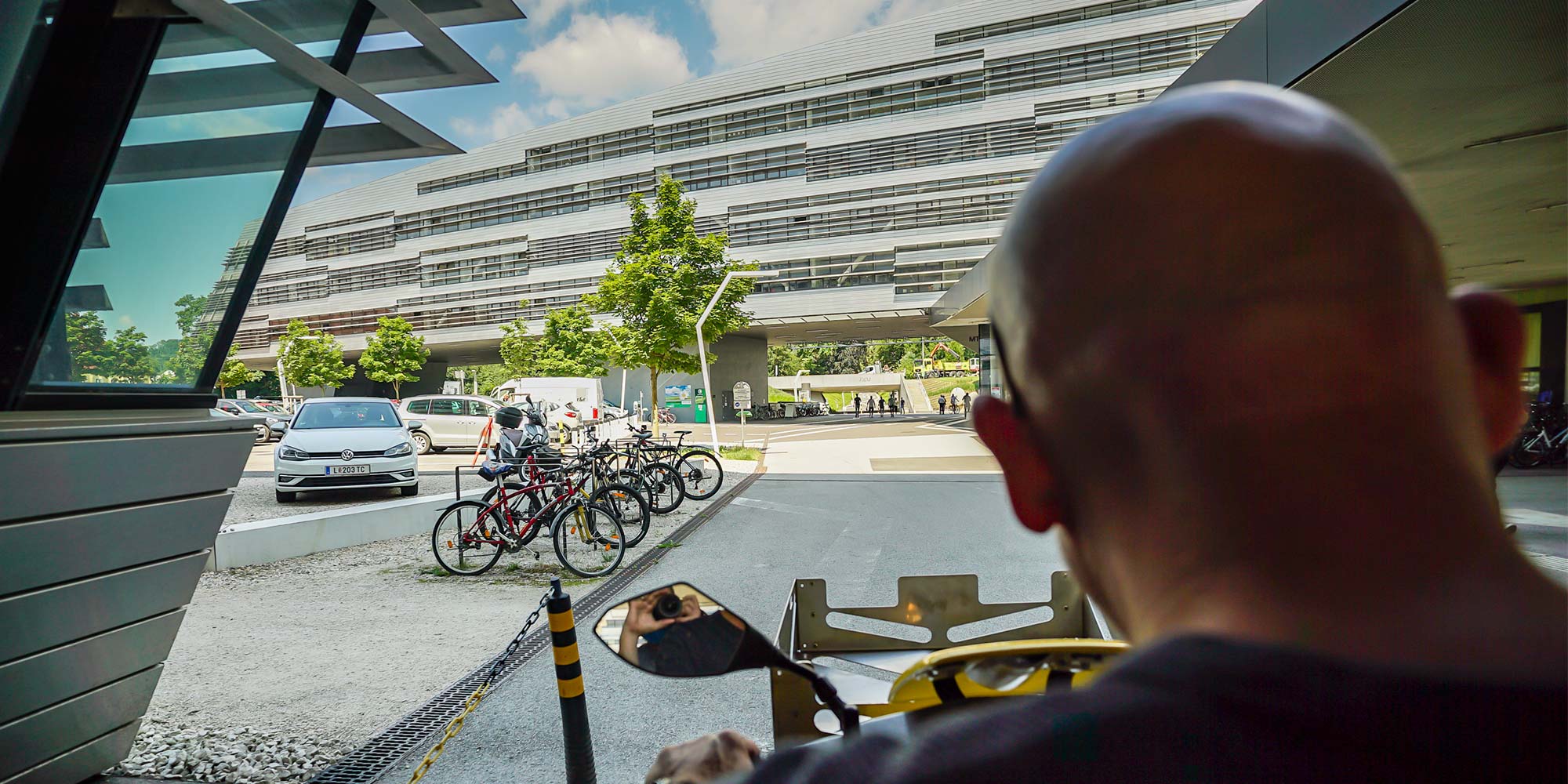
The festival site is extensive and stretches on both sides of Altenberger Straße. To cover the distances more quickly, Austrian Post provides the festival team with jet flyers. With one of them we set off.
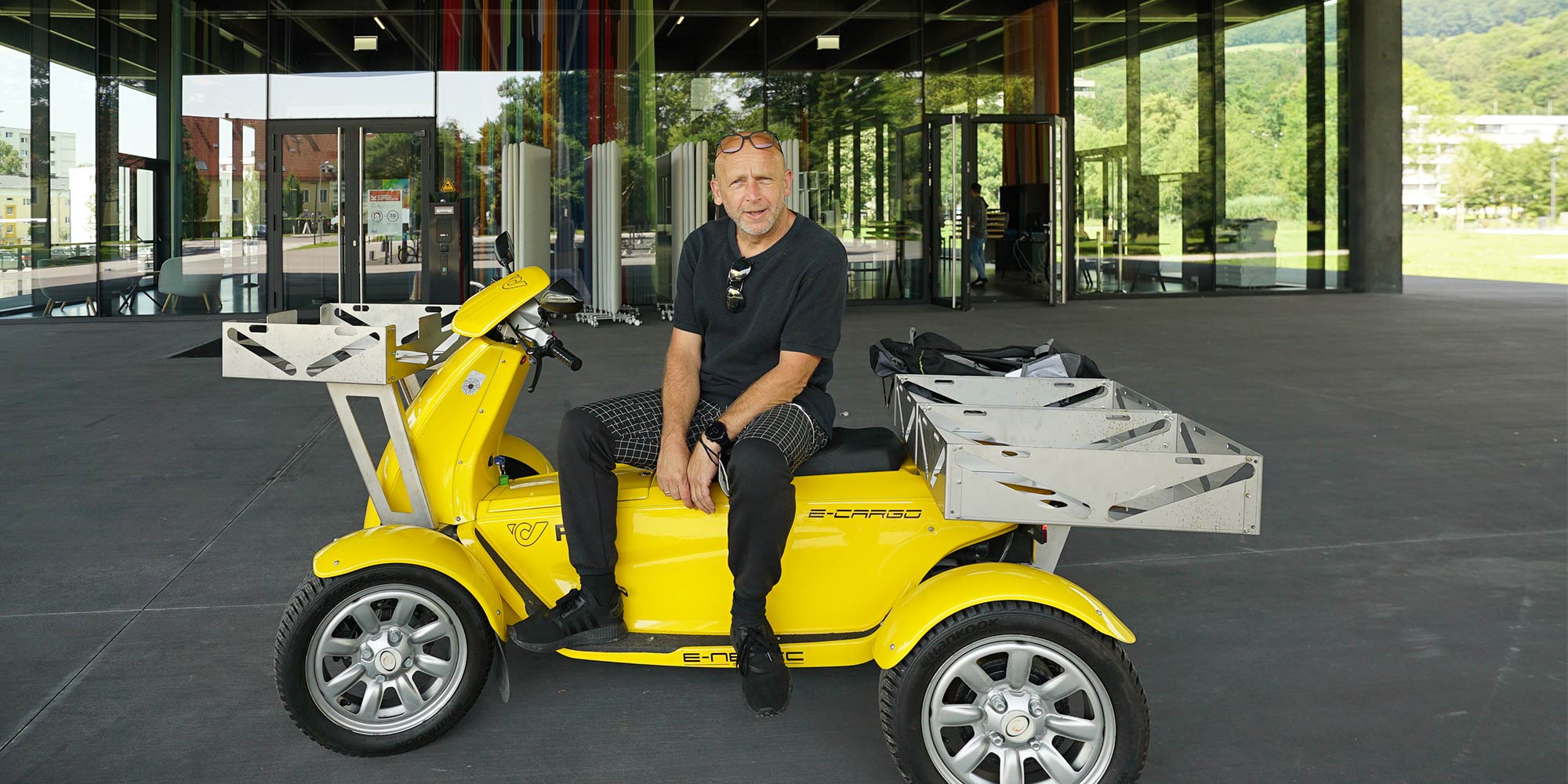
Our first stop is Kepler Hall, a multi-purpose building designed as a welcome center, a gym, an auditorium and an event venue. Kepler Hall is dedicated entirely to the Gardens this year, it is the window to the wider world. The exhibition is titled “Symphony of Absence”.
On Festival Friday, the Bruckner Orchestra Linz will make its impressive appearance at the Big Concert Night. Then the basement of Kepler Hall is covered with music stands and chairs – which we repeat in the exhibition architecture, distributing dozens of chairs and music stands throughout the building. Digital windows are placed on top of it, through which insight is provided into the so diverse program of the many garden partners in Ars Electronica’s international network. An entire exhibition is devoted exclusively to those program makers who can’t come to Linz but are there nonetheless.
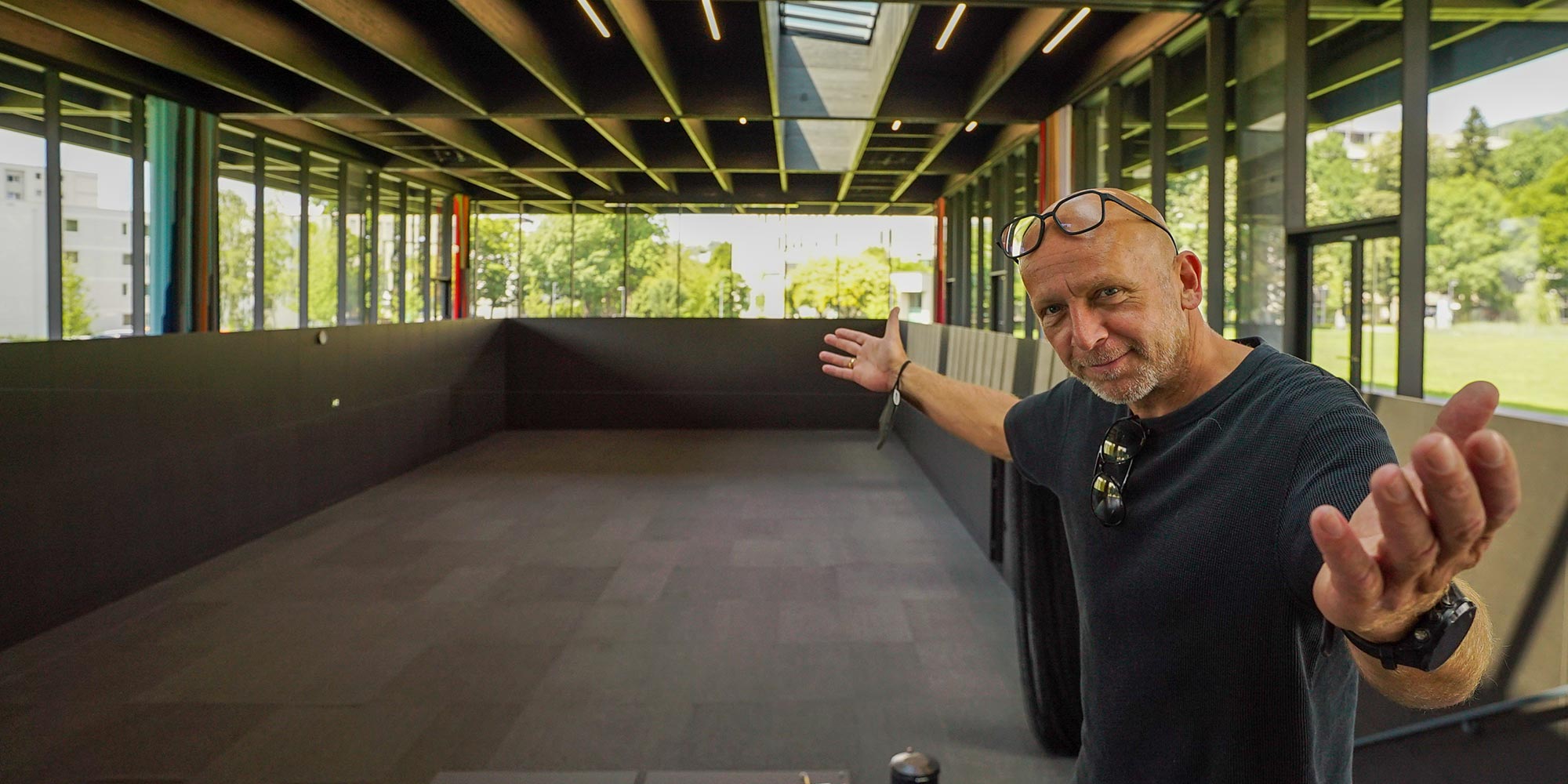
We’ll continue on toward the library-the new festival center, the Ars Electronica Epicenter, the navel of the world for a few days. The place will be dominated by the “Festival University by Ars Electronica and Johannes Kepler University,” our cooperative project under the title “Transform your World”. Here, a space is created for 100 students from all over the world, who are between 16 and 24 years old, to discuss the global challenges, which circumstances are required for “man” to become capable and willing to change. In ten groups, the major issues surrounding digital transformation will be addressed and the contribution it is capable of making to developing and establishing innovative and alternative educational scenarios and concepts will be examined.
The library will be an animated, lively place where it will be the region and the city that show and offer concrete solutions to global issues with cutting edge technologies and best practice examples from collaborations between artists and creatives with regional business and industry, paired with JKU’s research and developments. The robot dog Spot in very special application contexts is just one example.
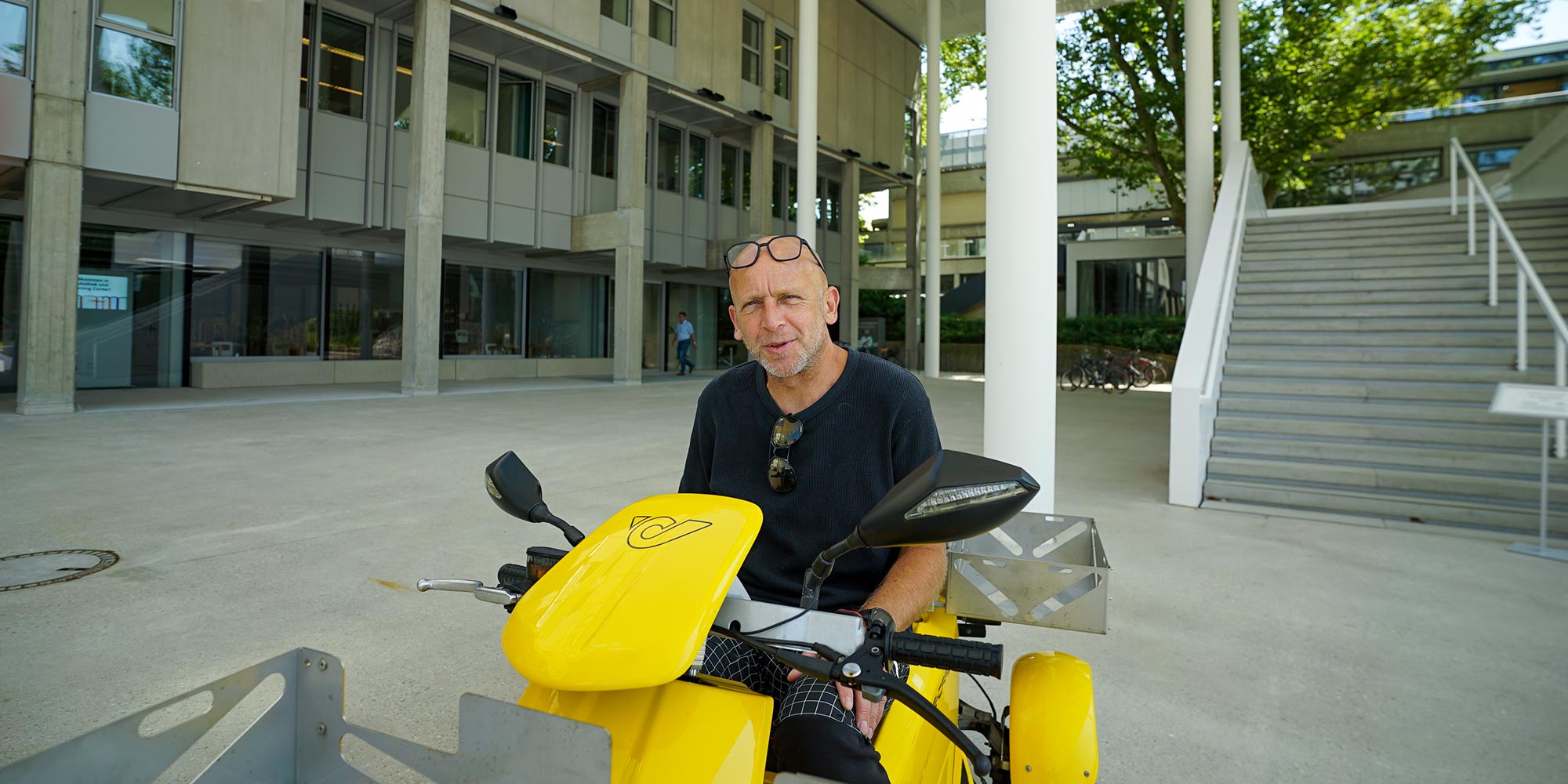

The LIT (Linz Institute of Technology) projects will be exhibited in the Learning Center. These projects were specifically funded and developed for the festival and originate from the JKU’s resident institutes. They all represent research projects that are in tune with the times and examine the alternative results that can be achieved by thinking outside the box and collaborating. The projects demonstrate that interdisciplinary collaboration is inevitable. On an academic level, these projects show very well how such collaborations contribute to better solutions.
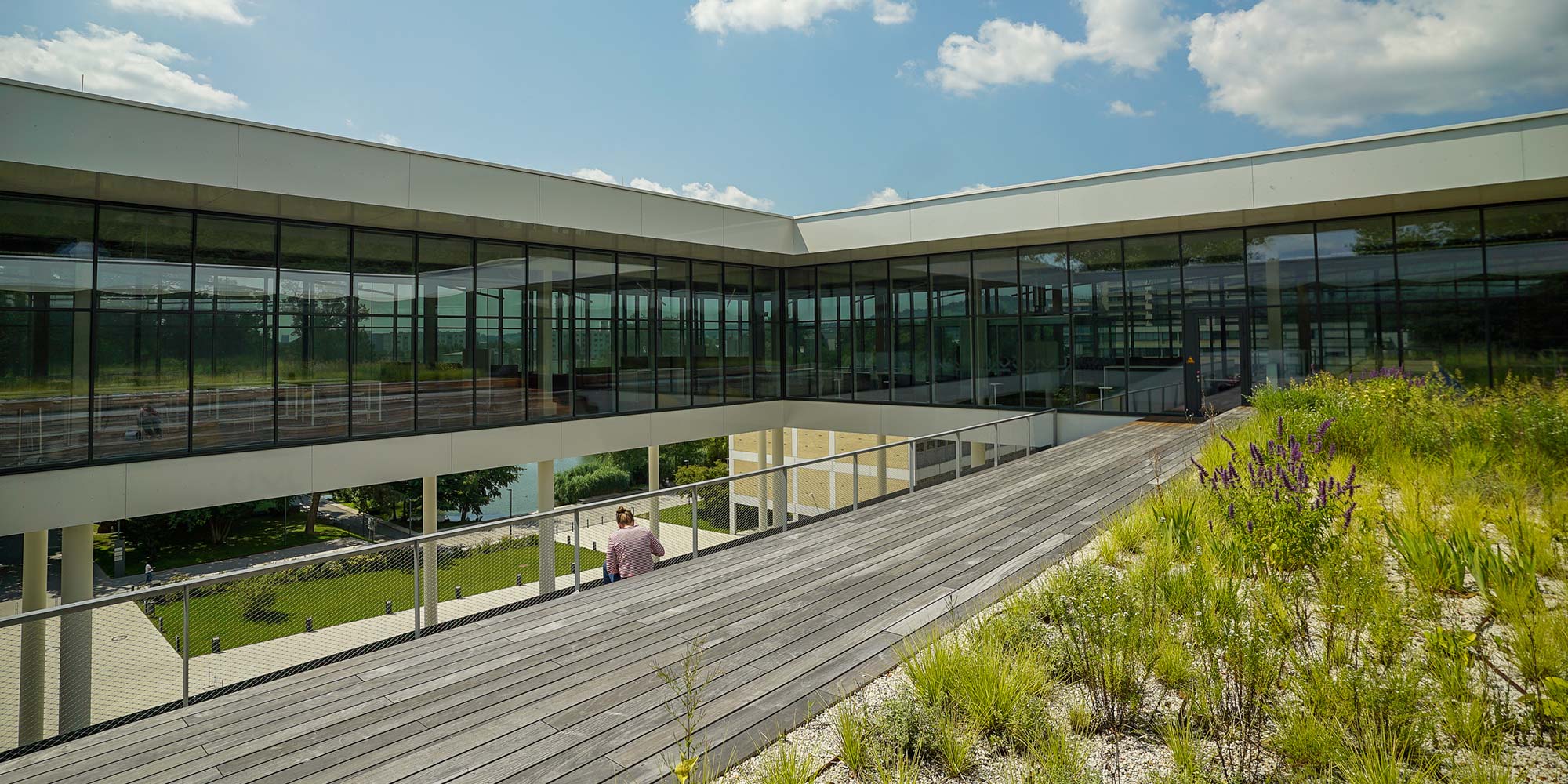
The Kepler building will be the site of create your world, the future festival of the next generation. The “Festival University by Ars Electronica and Johannes Kepler University” mentioned earlier will be flanked by works and projects from the younger generation. And these young people will be taking a concrete look at their future and the problems that need to be solved.
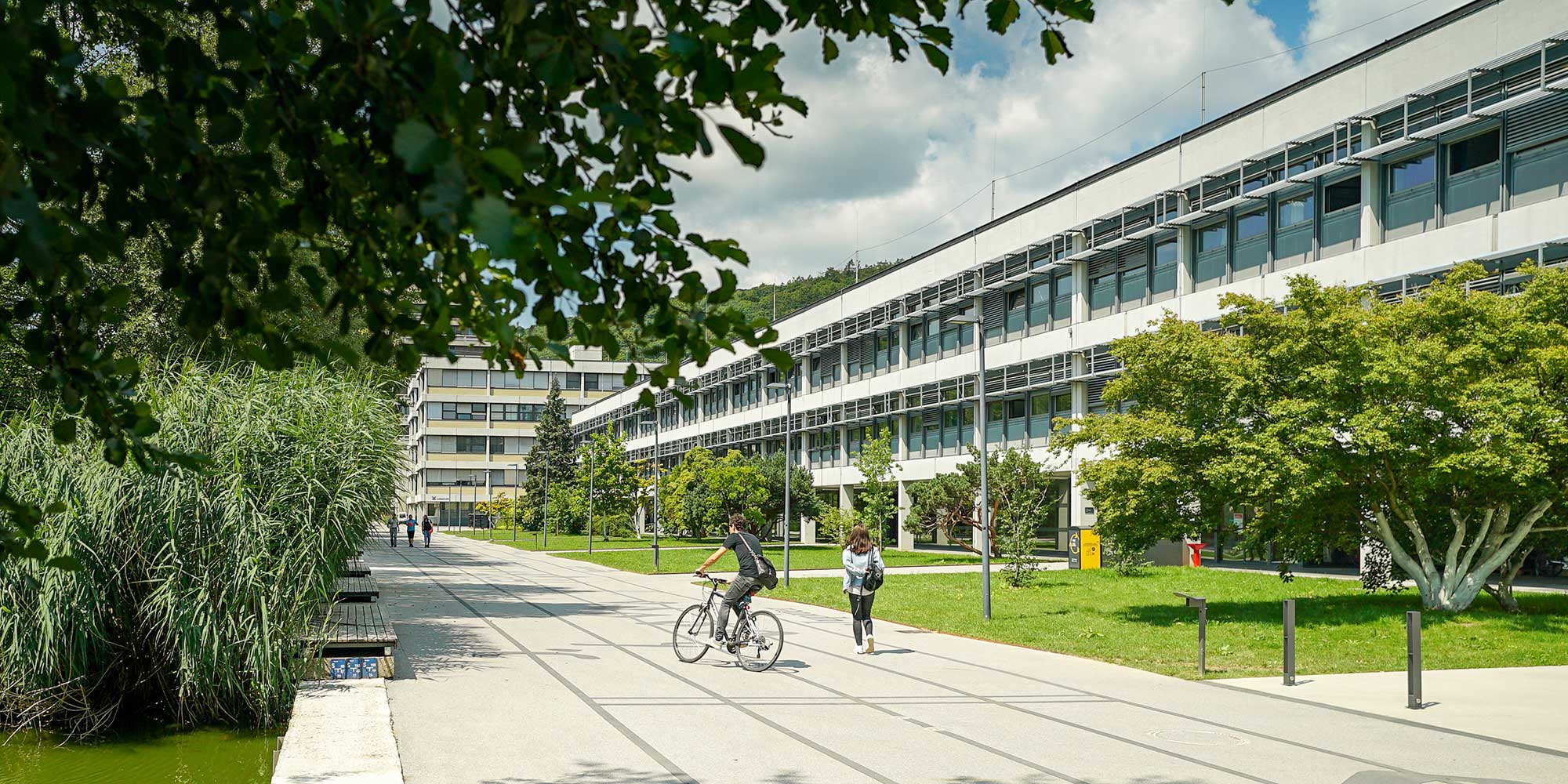
Our central exhibition house will be the Mensa, which will be filled with art from bottom to top, right out onto the terraces. A bit of a counterpart to the bunker in POSTCITY. For this place, visitors should certainly take at least (AT LEAST!) one hour to linger and let the art projects and prototypes from the art world take effect. The STARTS1 Exhibition and many other EU projects , as well as the winner of the Ars Electronica cooperation with Deutsche Telekom, Kyriaki Goni (GR), can also be seen here.
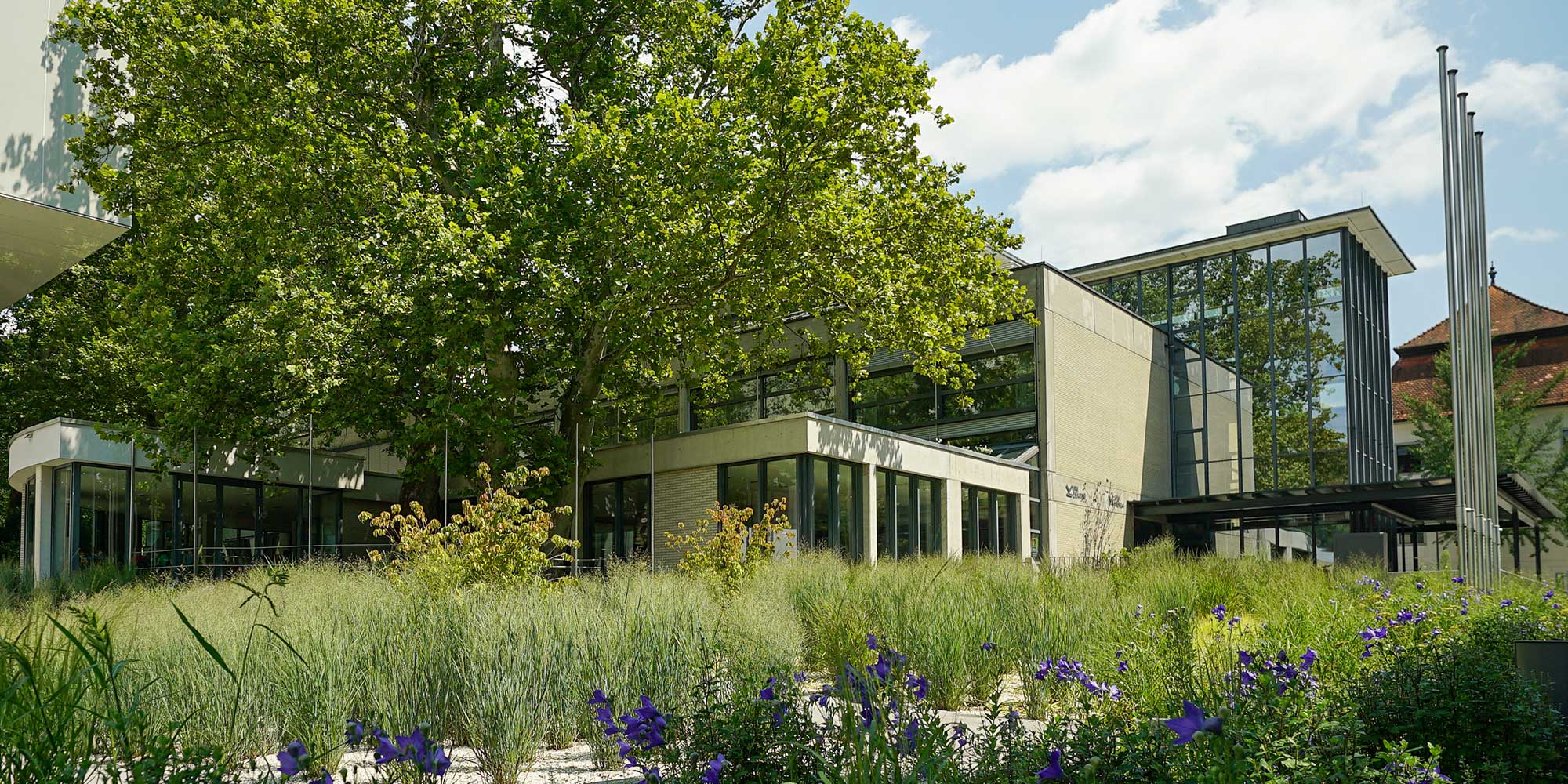
The park will be – that’s the working title for now – our spa stage. Here we’ll present, program, curate, and all that with free admission. This venue will offer entertainment from the world of Ars Electronica, presenting a cross-section of the regional and international program in an entertaining way that’s easy to consume for festival newbies and old-timers alike. Visitors can get a taste of the program, get up close and personal, make contact, and then decide whether they want to delve further into the subject.

On the path along the pond in the direction of the exit are food trucks, which together with Mensa and Teichwerk, but also with regional hosts cater exclusively with regional food and enhance the atmosphere of the park.
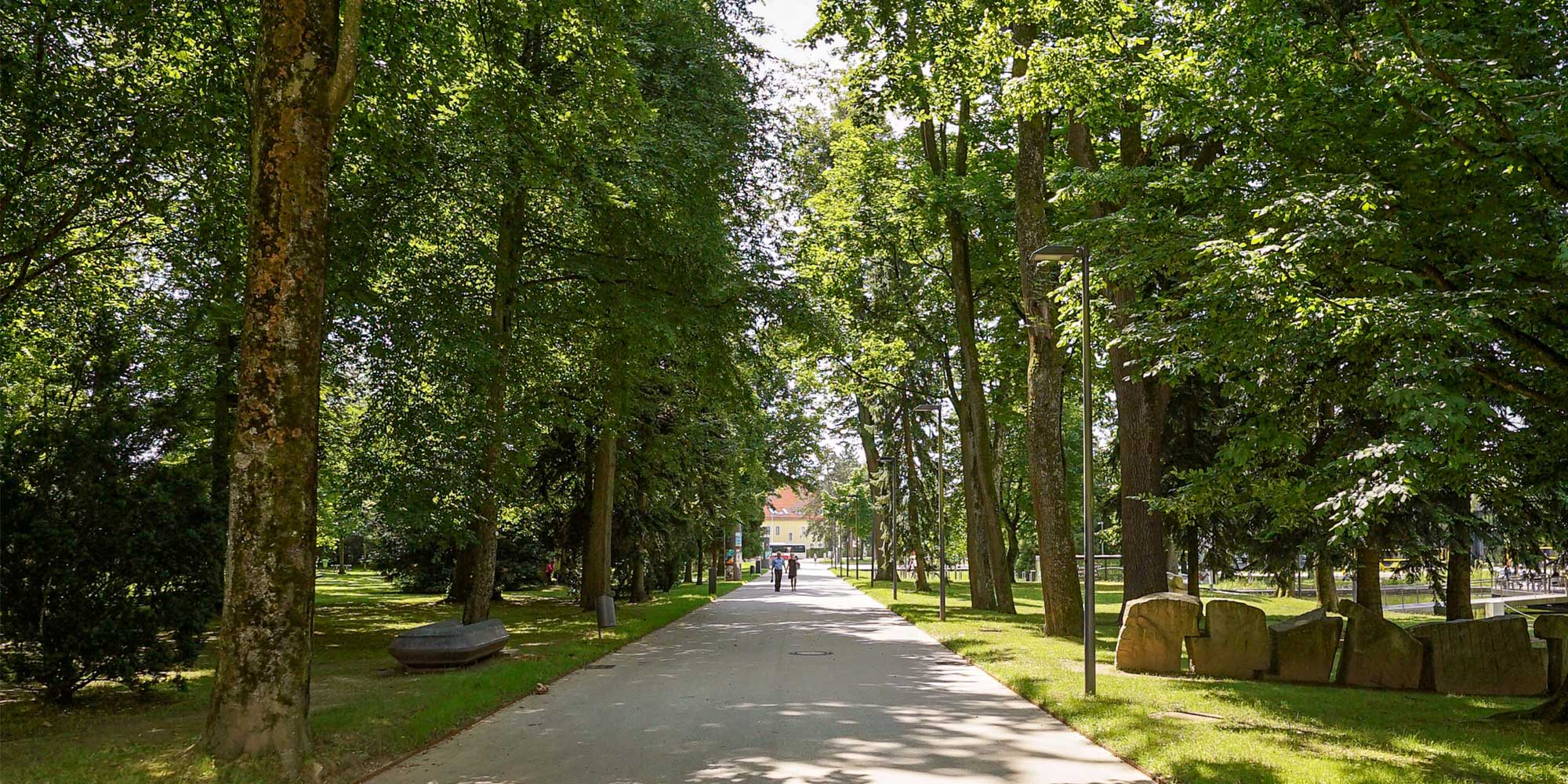
The Circus of Knowledge is for the time being the last milestone in the architectural transformation of this place. The opening of the festival and the gala, including the awards ceremony, will take place in the area around the castle.
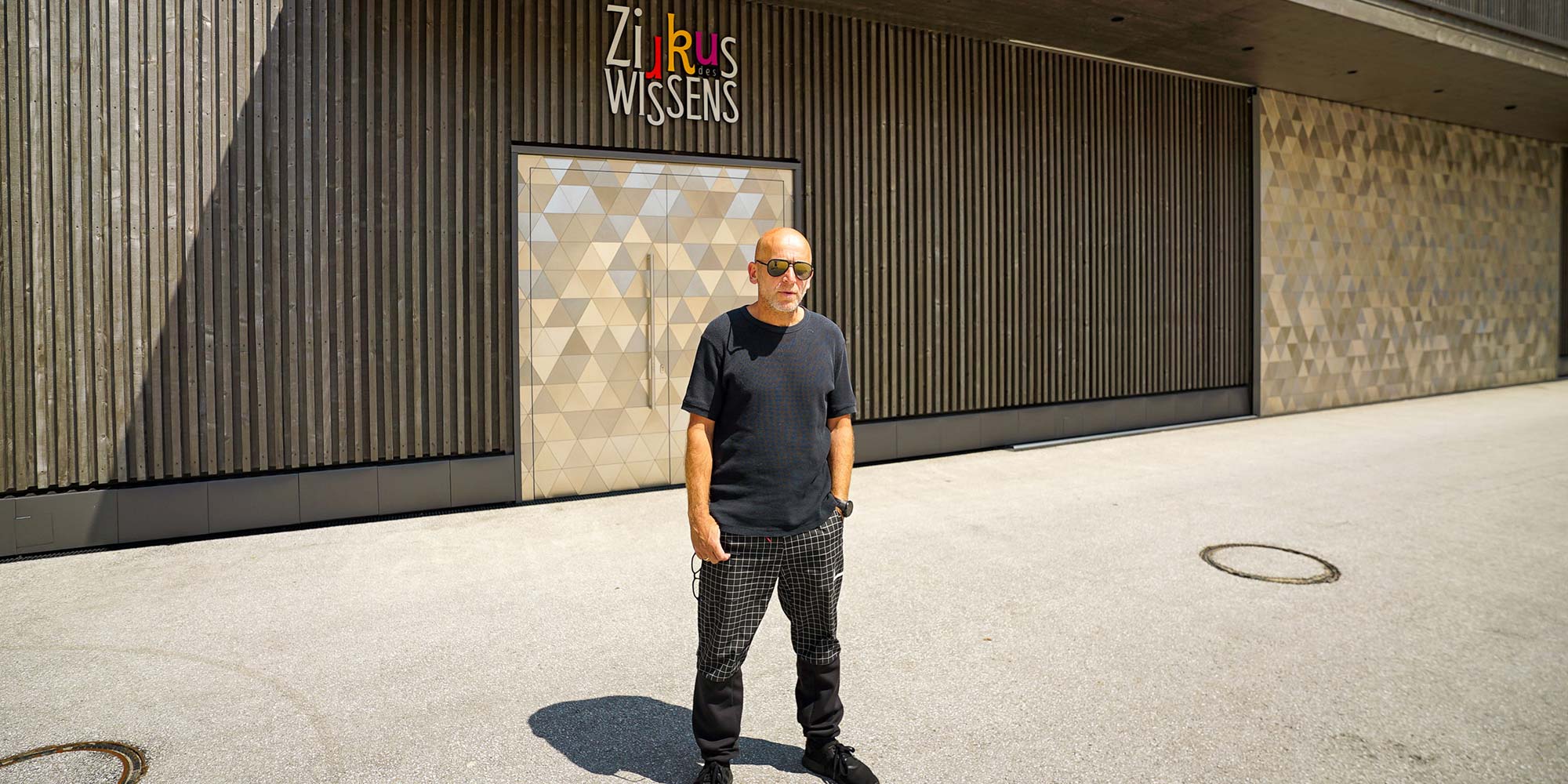

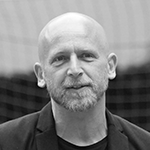 Martin Honzik is an artist and Head of Festival/Prix/Exhibitions at Ars Electronica. He graduated from the University of Art in Linz in 2001 with a degree in visual, experimental design and from the Johannes Kepler University Linz and ICCM Salzburg in 2003 with a master’s degree in cultural and media management. From 1998 to 2001, he was part of the production team at OK Offenes Kulturhaus in the OÖ Kulturquartier. In 2001, he moved to the Ars Electronica Future Lab, where he worked in the areas of exhibition design, art in architecture, interface design, event design and project management until 2005. Since 2006, Martin Honzik has been the director of the Ars Electronica Festival, the Prix Ars Electronica as well as the Ars Electronica Center exhibitions and Ars Electronica’s international exhibition projects.
Martin Honzik is an artist and Head of Festival/Prix/Exhibitions at Ars Electronica. He graduated from the University of Art in Linz in 2001 with a degree in visual, experimental design and from the Johannes Kepler University Linz and ICCM Salzburg in 2003 with a master’s degree in cultural and media management. From 1998 to 2001, he was part of the production team at OK Offenes Kulturhaus in the OÖ Kulturquartier. In 2001, he moved to the Ars Electronica Future Lab, where he worked in the areas of exhibition design, art in architecture, interface design, event design and project management until 2005. Since 2006, Martin Honzik has been the director of the Ars Electronica Festival, the Prix Ars Electronica as well as the Ars Electronica Center exhibitions and Ars Electronica’s international exhibition projects.
1 STARTS is an initiative of the European Commission under the Horizon 2020 research and innovation programme.
